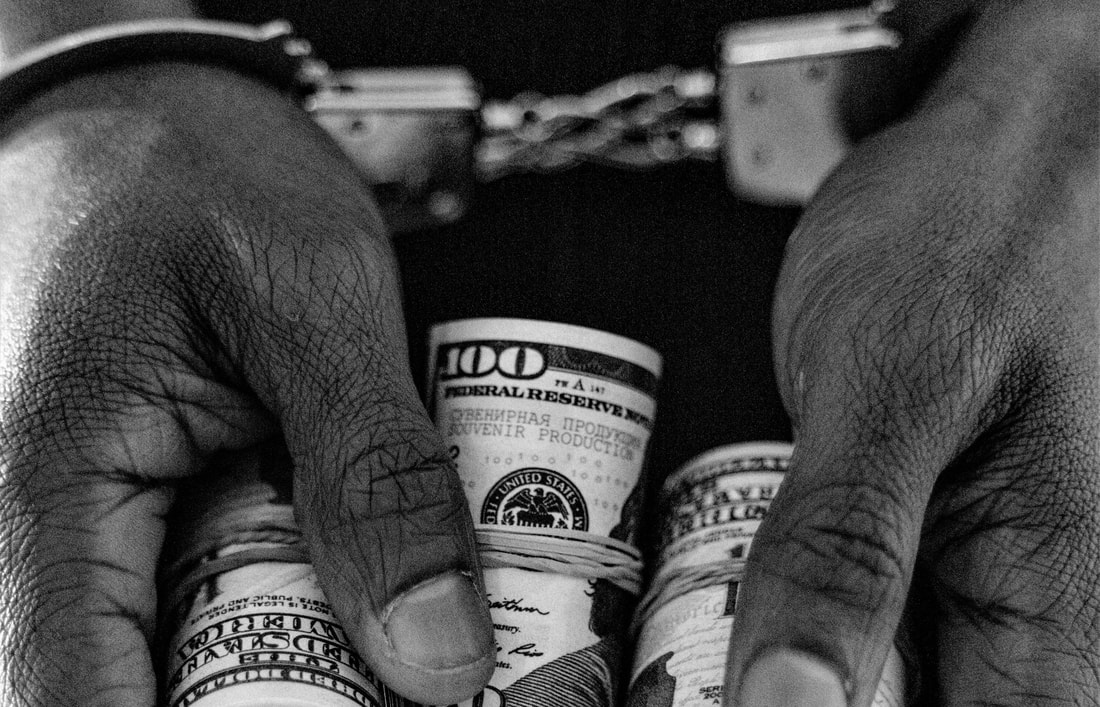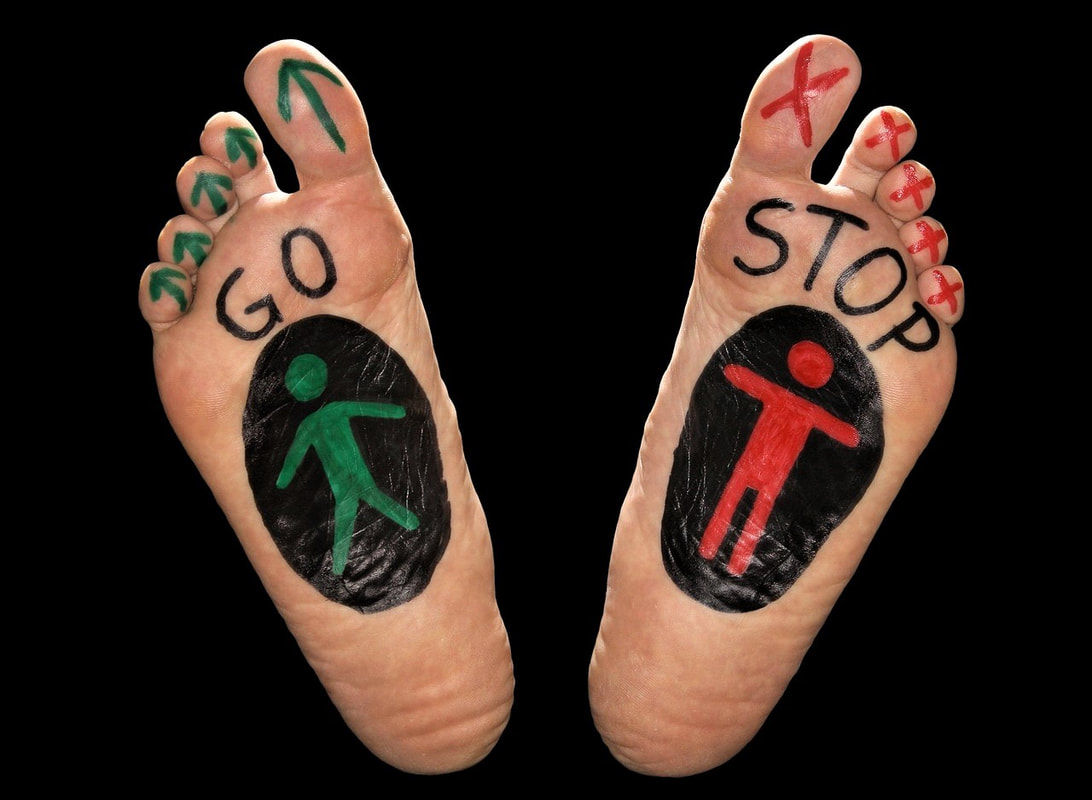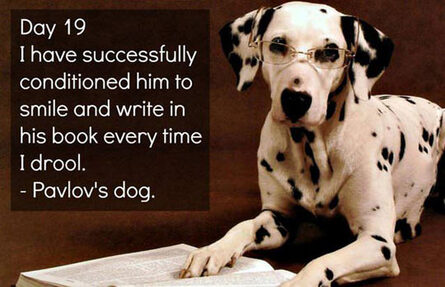|
‘The map of the world is always changing; sometimes it happens overnight. All it takes is the blink of an eye, the squeeze of a trigger, a sudden gust of wind.’ (Anderson Cooper) I ordered a large and colourful map of South East Asia for my bedroom wall recently. When it arrived, it was subtly different to the one that had been advertised and clearly depicts a Chinese geopolitical view of the region. Taiwan is colour-coded the same as China and the internationally-disputed 9-dash line is boldly marked around the whole of the South China Sea. It struck me how simple representations on a map can both reveal and aim to create a very specific cultural and political view of the world. I have another large and colourful map of the Earth mounted on the wall above my desk. This one shows the world as ‘upside down’, although the names on the ‘countries’ are still written the ‘right way up’. It feels strange and disorientating to look at and reveals, experientially, how fixed we can become in the representations we hold of of the world we have been taught and learned since childhood. A world map is also a mental map. Every portrayal is an implicit human construct. Nothing is simply ‘how it is’.
14 Comments
‘Money – it’s a hit. Don't give me that do goody good bullsh*t.’ (Pink Floyd) ‘When I die, if I leave ten pounds behind me, you and all humanity may bear witness against me that I have lived and died a thief and a robber.’ (John Wesley) Now that’s extreme. In his lifetime, UK Christian preacher John Wesley is estimated to have earned around £30,000 (roughly equivalent to £1,000,000 today). When he died in 1791, 47 years after having written these astonishing words (above), he was found only to have a few coins left in his pocket. He had given everything away. Wesley believed that to follow Jesus meant intrinsically to use whatever resources God had given him to help others in need. He challenged fundamentally those who believed that material acquisition was a blessing from God to enjoy for their own benefit. As his own income increased, he stayed at the same simple baseline and gave even more away. I find Wesley’s example incredibly humbling and challenging. I live in a society that is individual-, wealth- and future-orientated. An implicit cultural imperative is that we should each make as much money as we can; both so that we can improve our own quality of life today and prepare for the future, confident that we will have plenty to spend then as now. I once had a long journey home from working among the poor in Cambodia. An intrigued Indian Hindu businessman travelling next to me on the plane confessed in bemusement that he found my work for a Christian NGO shameful: ‘Shouldn’t you be earning as much money as possible to increase your own family’s wealth?’ He had a point. To take care of one’s own family is, of course, an important, universal, human value. Yet, still, our worldviews collide. I find my life inspired by a different ethic, exemplified by Jasmin, a radical follower of Jesus among the poor in the Philippines: ‘Whatever status or power you have, use it for those who are vulnerable; whatever money you have, use it for the poor; whatever strength you have, use it for the weak; whatever hope you have, use to bring hope to those who live without hope. Speak up for justice and truth – whatever the cost. Pray.’ That isn’t about self-righteousness. It’s not a denial of the visceral tug of anxiety and security. It is about choice, decision and stance. What beliefs, values and principles guide your life? What do they look like in practice? ‘Hindsight no longer leads to foresight after a shift in context.’ (David Snowden & Mary Boone) ‘What does this new situation call for?’ is a vastly different question to, ‘What did I do last time that worked?’ I learned this the hard way. In my younger days, I led a youth and community work project in the North of England that was, by most accounts, a great success. I subsequently moved to the South of England where, instinctively, I replicated that same approach. This latter initiative was, sadly, an unmitigated failure – yet a very important way to discover that context is critical. Increasing dynamic complexity in the world means that, in many situations we now face, the past is no longer a reliable predictor of the future or sound basis for action. In contrast to earlier views that change happens sequentially and linearly with one state of play building on another, Michael Lewis argues that, ‘change may be the result of complex emerging connections that are often random.’ Significant influences can, and often do, emerge unexpectedly at any time and from left field. There are parallels at an individual level. Karen Franklin comments that for the common maxim ‘the best predictor of future behaviour is past behaviour’ to be true, ‘the anticipated situation must be essentially the same as the past situation’. Yet, when is it? Is any context really that fixed? Eleanor O’Leary reflects astutely: ‘Everything that we have learned, everything that we have experienced is carried in the present moment.’ The past is known and feels familiar. We can get stuck there. Whether dealing at macro-strategic-systemic levels or with the people, relationships and situations in front of us, learning to critique our presuppositions-from-experience has never been more crucial. A simple aide-memoire? Post an image of traffic lights on your cell phone, laptop or desk: red light - pause; amber light - reflect; green light - act. Alongside amber, ask: ‘What am I assuming?’ (This can be a difficult question to answer, owing to deep personal-cultural blind spots or defensive routines)*. Yet, to discover a way to see the past, present and future through fresh eyes is absolutely key. What techniques have you found that help you and others do this well? (*Interested to develop your own critical reflexivity and critical reflective practice? Get in touch!) My daughter is a guinea pig. This afternoon in the bright sunshine, I invited her to take part in an experiment. First, we stepped out into the street and, gesturing to a line of cars parked at the roadside, I asked, “If you were to buy a car, what colour would you choose, or definitely not choose?” She answered, “I’d love a white car.” “OK,” I replied, “let’s go for a walk into town and back. Your task is to count every white car that we pass. If you have the same number as me when we get back here, I will give you £10. How does that sound?” She grinned and willingly agreed.
An hour later, we stopped back where we had started and I asked her, “So, how many red cars did you see?” She looked at me blankly. “I didn’t see any red cars. I counted 206 white cars.” In fact, we had passed 93 red cars, yet she had been so focused on the white cars that she hadn’t seen a single one. This simple experiment illustrates an important psychological phenomenon known as selective attention: “The ability to pay attention to a limited array of all available sensory information…a filter that helps us prioritize information according to its importance.” (Bertram Ploog, 2013). Gestalt psychotherapist Geoff Pelham comments that, in any given relationship or situation, we notice who or what matters most to us (The Coaching Relationship in Practice, 2015). This idea of who or what matters most reflects beliefs, values and emotions. In this exercise, my daughter was influenced and motivated by her beliefs (that this experiment would serve some useful purpose), values (the prospect of a £10 reward) and emotion (her choice of a colour she likes). These factors combined to ensure concentration on a task (counting white cars) that required selective attention. Why is this insight significant in our work with people? The principle extends beyond literal-visual perception to deeper psychological processes too. Our beliefs, values and emotions subconsciously influence our focus and act as filters. We construe personal-shared narratives based on what we perceive. Such narratives appear to us as-if reality, as-if totality, and often without any awareness of who or what we have excluded. As such, narratives always point to and reveal, implicitly, who and what matters most to a person, group or culture, rather than to a definitive account of reality per se. A key question is, therefore: who or what are we, and others, not-noticing? If we can enable a shift in perception, a re-shaping of a narrative, what then becomes possible? Interested to do further reading in this area? See: The Art of Looking: Eleven Ways of Viewing the Multiple Realities of our Everyday Wonderland. Running for the school bus every morning felt like hard work. I don’t know why I didn’t just get up a bit earlier but, hey, I was a teenager. I remember vividly having my attention caught by a programme on TV featuring Timothy Gallwey and his revolutionary idea of The Inner Game. I think it served as an introduction for me to the world of psychological insight. I practised his idea, focusing away from the activity itself onto something else as a distraction, and the running became smoother, easier.
Some years later, the UK’s Guardian Newspaper ran an advertisement on TV, Point of View, that challenged perspective and interpretation. It invited viewers to re-think their own ways of making meaning of events, including the implicit risks of assumptions and prejudice. I found the ad’s message simple yet profound. It was at a time when the need to question everything was already pulsating through my own mind, within a prevailing culture that seemed to question far too little. Later still, I saw a psychology experiment on TV, The Invisible Gorilla, by Christopher Chabris and Daniel Simons, designed to test selective attention. The narrator invited viewers to try the test for themselves by watching a short video clip with specific instructions to follow. She also suggested that viewers record it so that they could play it back afterwards. I dutifully followed the instructions and was so completely astonished by the results that I did play it back to check if I’d been tricked. Such influences, among others which now included my Christian faith, drew me into the professional fields of psychological coaching, training and organisation development (OD). I continue to be curious, intrigued and amazed by the dazzling weirdness, complexity and potential of people, teams, groups and organisations, and by different cultures. I hope and pray I will never lose that sense of wonder. Who or what have been the earliest or greatest influences on your life and career? You are what you eat. That’s what I read on social media anyway, particularly during vegan January (in the UK). We could propose alternatives: You are what you think; or, You become what you do. There’s an idea in psychology that we don’t really know who we are until we expose ourselves to different situations, or find ourselves in them, then observe what we think, feel and do. We may discover, with surprise, that we are quite different to how we had imagined ourselves to be. Another idea is to think of an idea, an approach, and then act on it as if it were true. It’s as if I’m choosing in advance who I will be, how I will behave, how I will respond. So, for instance, if I’m facing a presentation where I lack confidence, I can stand up straight, tell myself I feel incredibly confident, create an image in my mind of being incredibly confident, then act that out, like a role play, until it becomes real and normal for me. It’s about breaking default patterns and creating new ones. I’m reminded here of a biblical principle: ‘Be transformed by the renewing of your mind.’ I’m limited or changed by what I believe and act on, by faith, as possible – in this case, with God. Richard Bach in his philosophical allegory, Illusions: ‘Argue for your limitations, and they are yours.’ Henry Ford: ‘Whether you think you can or you can’t, you’re right.’ This isn’t positive psychology on steroids. It’s an acknowledgement of the profound relationship between thinking, feeling, experiencing possibility - and hope. A goal of leadership, OD, coaching and training is to tap into the power of imagination, to create and release potential by paying attention to what people think, believe, hypothesise, assume, notice (and not-notice), the deeply personal and cultural narratives they tell themselves and each other – and to experiment with divergence, disruption, dissonance and change. You can because you think you can: When have you adopted this idea? How did you do it? What difference did it make? Are you ready to challenge and stretch your thinking and practice, to open up and create fresh possibilities and opportunities? Get in touch! [email protected] This short article addresses the question, how to spot and deal with untrue truisms that appear to be true. The tricky bit is that common truisms often guide and reinforce everyday beliefs, behaviour, decisions and actions – including at work. Untrue truisms can prove limiting, unhelpful or damaging. What do you think? ‘Ring a bell and Pavlov’s dog salivates.’ True? Not necessarily. It depends on the context in which the dog hears the bell (Anne Rooney, Psychology – How the World Works, 2019). ‘Brainstorming in a group generates more ideas than individuals generate alone.’ Not necessarily true either. It depends on whether individuals in the group have had opportunity to write down their own ideas separately first (Michael West, Developing Creativity in Organisations, 1997). We could list many more frequently-proclaimed and widely-accepted truisms here that turn out to be not entirely true. ‘People don’t like change’. Oh, really? Perhaps closer to the truth could be a more qualified statement, ‘Some people don’t like change’ or, as a variation, ‘Most people don’t like having change forced on them’ where the emphasis is definitely more on forced – an implied denial of choice, freedom, influence or control – than on change per se. The problem here lays in simplistic generalisations, superficial conclusions, trite clichés that may well sound plausible and convincing on the face of it yet lack validity and soundness. They present an idea of reality with an air of marked confidence, yet which doesn’t correspond with research evidence or lived experience. (Some contemporary politicians came to mind as I wrote that…but I won’t go there). Worse still, we and others may act on untrue-truisms as if they were true. What can we do as leaders, coaches, OD and trainers to notice, reveal and test hidden, personal-cultural assumptions that are so often masked and disguised as statements of fact? Firstly, listen for words or phrases that signpost a claim is about to follow, e.g. ‘of course, ‘obviously’, ‘clearly’, ‘self-evidently’, ‘everyone knows that’. Secondly, acknowledge that the explicit truth claim represents an implicit belief. Thirdly, open it up for critical exploration and evaluation. Can I help you develop critical reflective practice? Get in touch! [email protected] 'In ‘Leadership and Self-Deception’ (2006), the Arbinger Institute highlighted the subtle, subconscious and serious art of deceiving ourselves and others in organisations...without realising it. This short article says a bit more about this strange risk phenomenon and invites your insights and ideas on how to address it! Is everything we know wrong?' In 2010, the BBC released a ground-breaking Horizon documentary entitled, ‘Is Everything We Know About the Universe Wrong?’ It set out to question and challenge current, fundamental and widely-held scientific beliefs about the universe, particularly in relation to ‘dark matter’, ‘dark energy’ and ‘dark flow’. Perhaps the most radical dimension to the investigation was its willingness to wonder. Are our hypotheses, our cosmological theories, so convincing to us, so self-evidently true for us, that they blind us, close down uncomfortable questions, act as powerful psychological-cultural filters? It coincided with the release of a plethora of popular books (e.g. Chabris & Simons’, The Invisible Gorilla, 2011; McRaney’s, You are Not so Smart, 2012) that set out to reveal and challenge our cognitive and cultural limitations and distortions. An underlying, recurring theme is that self- and group deception act in stealth mode. We are most deceived when we don’t know we’re deceived. We face the same challenges as leaders, coaches, OD or trainers: how to practise reflexivity/praxis ('critical reflective practice') whilst enabling other people, groups and organisations to do so too. Thomas Aquinas offers useful psychodynamic insight here. If we face an unresolved question that captures our interest and imagination, it sets us off on a quest, a journey, of discovery. If, however, we find an explanation or solution that we find convincing, the mind comes to a standstill, our thinking comes to a halt. This is a reason why transformational teachers such as Jesus, Buddha and Socrates are famous for posing high order, high quality, questions, puzzles or paradoxes – searching, evocative, provocative stimuli that leave us deeply restless until, if possible, we find resolution. So, some food for thought: As leader, coach, OD or trainer, what are you, or your clients, assuming or taking at face value? When have you, or they, leapt to a conclusion too soon, treating an open question as if it were a closed one? What rules, principles or received wisdom (e.g. ‘good practice’) do you, or they, consider obvious or sacred? When do you, or they, shut down questions or avenues of inquiry because they feel too difficult or sensitive to raise? Which tricky issues, experiences or conversations are you, or they, avoiding? How can you get self-deception out of stealth mode? Can I help you develop critical reflective practice? Get in touch! [email protected] What do you really believe? It’s sometimes hard to know. We can believe something absolutely, with real passion and conviction, and yet act completely differently. The really weird thing is that we can convince ourselves that we’re living consistently with what we believe and yet the behavioural evidence, the decisions we take, the time and energy and resources we spend on people and things, can tell a very different story. Our human ability to deceive ourselves is quite remarkable.
Against this backdrop, words like integrity, genuineness, authenticity and congruence spring to mind as a stark contrast, posing a powerful and deep challenge to who we are and how we conduct ourselves in the world. We tend to think of these words as inner qualities, personal attributes, the idea of someone walking their personal talk whether anyone notices it or not. Yet they are often formed, outworked and sustained in the context of complex situations and relationships. In this sense, we could consider the integrity phenomenon as having social and cultural as well as personal dimensions. It’s about the individual but it’s not only about the individual. So we can ask: Who best models integrity for us? If we live seek to live with integrity in all aspects of our lives, what impact and influence does that have on those around us? What cultural beliefs and values nurture and support it? What social conditions provoke and inspire it, often against all the odds? What does this mean for leaders, OD and coaches? Here are some ideas: 1. Clarify our beliefs and values: what matters most to us? 2. Invite people to support and challenge us when we risk dissonance, self-deception or slip up on route. 3. Model, inspire, support and affirm integrity in behaviour, relationships, decision-making and culture. 4. Support and challenge, not collude, when working with clients. 5. Love, honour –and forgive – when we and others get it wrong. ‘Listen. Tactics and techniques matter – but not as much as what you believe.’ This was my advice to a CEO who was about to embark on a strategic change process. The question had been about to what extent and how to engage staff in it. ‘As you look out across the organisation, what do you believe about those you see? Picture the real people, the real faces. Do you see abstract human resources that can be retained or dispensed with depending on the outcome of the review – or passionate and talented people you’d love to have with you as you move forward from here?’ My point is this: what you believe about people influences fundamentally how you relate, how others experience you and how they’re likely to behave in response. If the idea I hold in mind is that you are a dispensable human resource, no matter what clever engagement tactics and techniques I use, at some level you will sense it, feel it, know it. You’re unlikely to trust me if what I say and do conflicts with what you’re picking up from me intuitively or subconsciously. It’s a mixed message. You will experience me as confusing, inauthentic, incongruent. You may resist or withdraw. Now picture this. If the idea I hold of you is that you’re amazing, talented and that I really do want you on board, imagine the impact that belief has on you, on how you experience me, on how you feel as a result. The CEO chose this latter stance as it resonated well with his personal values. He also asked me to hold him to account personally throughout to ensure integrity and consistency. The change leadership team achieved high levels of useful and enthusiastic staff input and, to top it off, the Staff Council presented the team with a special award for modelling ‘partnership spirit’. So, leader, OD, coach or trainer, what do you believe..? |
Nick WrightI'm a psychological coach, trainer and OD consultant. Curious to discover how can I help you? Get in touch! Like what you read? Simply enter your email address below to receive regular blog updates!
|












 RSS Feed
RSS Feed